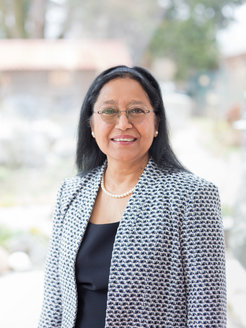Charles F. Kettering Award for Manajit Hayer-Hartl

About Manajit Hayer-Hartl
Dr. Manajit Hayer-Hartl completed her PhD in Chemistry in 1984 at the University of Stirling, UK . Between 1984 and 1990 she held post-doctoral fellowships at the Louis Pasteur Institute in Strasbourg, France, at the Ludwig-Maximilian University of Munich and the Jules Stein Eye Institute, Los Angeles, USA. From 1991 to 1997, she did research at the Sloan Kettering Institute, New York, USA. Subsequently, she was project group leader at the Max-Planck-Institute of Biochemistry in Martinsried. Since 2006, she is head of the research group "Chaperonin-assisted Protein Folding” at the institute. She is interested in understanding the fundamental mechanisms of chaperone-assisted protein folding and assembly. Hayer-Hartl is an elected member of the European Molecular Biology Organization (EMBO). 2017 she received the Dorothy Crowfoot Hodgkin Award.
About the American Society of Plant Biologists
American Society of Plant Biologists (ASPB) is a professional society devoted to the advancement of the plant sciences. It publishes two journals and organizes conferences, and other activities that are key to the advancement of the science. The Society was founded in 1924 to promote the growth and development of plant biology, to encourage and publish research in plant biology, and to promote the interests and growth of plant scientists in general. Over the decades the Society has evolved and expanded to provide a forum for molecular and cellular biology as well as to serve the basic interests of plant science. It publishes the highly cited and respected journals Plant Physiology and The Plant Cell. Membership spans six continents, and the members work in such diverse areas as academia, government laboratories, and industrial and commercial environments. The Society also has a large student membership. ASPB plays a key role in uniting the international plant science disciplines. https://aspb.org/about/
Further information about Hayer-Hartls latest research:
http://www.biochem.mpg.de/en/20171208-aigner-wilson-hayerhartl












